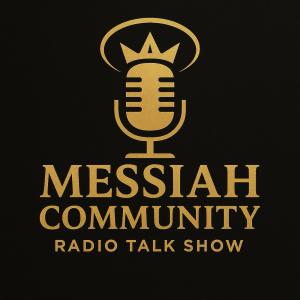Messiah Community Radio Talk Show

Milan Dragicevich -The Persuasive Actor
This new book by Milan Dragicevich, officially released in March 2019 by the Hackett Publishing Company, is a bold and innovative approach to contemporary actor training. By adapting the classical principles of rhetoric, today’s actor learns to send a powerful vocal “charge” into the act of speaking, strengthening expressivity and range, vocal bravery and command. The book seeks to rediscover the lost art of persuasive speaking, ultimately transforming an actor’s relationship to language, from Shakespeare to Stoppard, from Shaw to Hip-Hop Theater, igniting a spark that will create a more evocative, courageous, and thrilling performance. I bring a large cargo of passion, energy, discipline, and commitment to the classroom. Students learn best when they are inspired by the material, see vibrant applications of the work to their own growth, and therefore actively seek new knowledge, ways of connecting various paths across a subject field. I strive to inspire this impulse in every student, compassionately (yet firmly) challenging them to ask the best of themselves, to exceed their own (often) narrowly defined expectations or limits. Dedicated work leads to impressive growth and results. In my classroom, I combine a classical discipline with a contemporary application or energy. When students are rooted in foundational tools of performance, they acquire wings to soar across any kind of theatrical terrain. Learning classical techniques of rhetoric, as taught in my Detonated Language or Acting Shakespeare courses, can immensely help the performer find bold verbal expression in the contemporary plays of Tom Stoppard or Suzan-Lori Parks. Both writers, in radically different ways, provide a muscular text, filled with bold expressive vocal opportunity. Here, the classical and contemporary worlds harmonize, work together to create a strong one-two punch. (Indeed, the great psychedelic rock guitarist Jimi Hendrix built his fantastic temple on the solid ground of classical blues.) My courses feature this dynamic mix, whether in my Shakespeare, Detonated Language, Intermediate Acting, or Stage Movement classes. In Stage Movement, for instance, students learn the rigorous physical theater techniques of Japan’s Tadashi Suzuki to adapt to any theatrical text, from Quiara Alegria Hudes to Samuel Beckett. I believe students are excited and strongly motivated by this strategy. This strategy challenges students. At the same time, I allow for a wide variance in personal growth. Not everyone learns in the same way, achieves the same results in the same amount of time. I emphasize that each student should take note of their own individual starting point, and gauge their progress accordingly. Moreover, I strive to instill in students a sense of adventure and yes, “fun,” in the classroom. Learning can be a wondrous journey, filled with unexpected surprises and vibrant discoveries. Intrepid exploration is necessary. Over the past 7-8 years, I have significantly expanded and broadened the range of material distributed to performance students in my language-driven acting courses. By analyzing and performing speeches from India’s Arundhati Roy, for instance, as well as Hip Hop theater and Slam Poetry texts, I have been able to engage my students in a more diverse and varied discussion of the role of language in rhetorical persuasion. Speaking, in this context, is viewed not only as a performance but as an opportunity to unleash persuasive arguments in the civic arena. Again, this strategy weaves two strands, a “classical” underpinning with contemporary relevance and application. Finally, I continually search for new perspectives, techniques, exercises, and texts to energize and enliven my courses. I want the material to be fresh not only to the students but to myself.






 Visit Podcast Website
Visit Podcast Website RSS Podcast Feed
RSS Podcast Feed Subscribe
Subscribe
 Add to MyCast
Add to MyCast